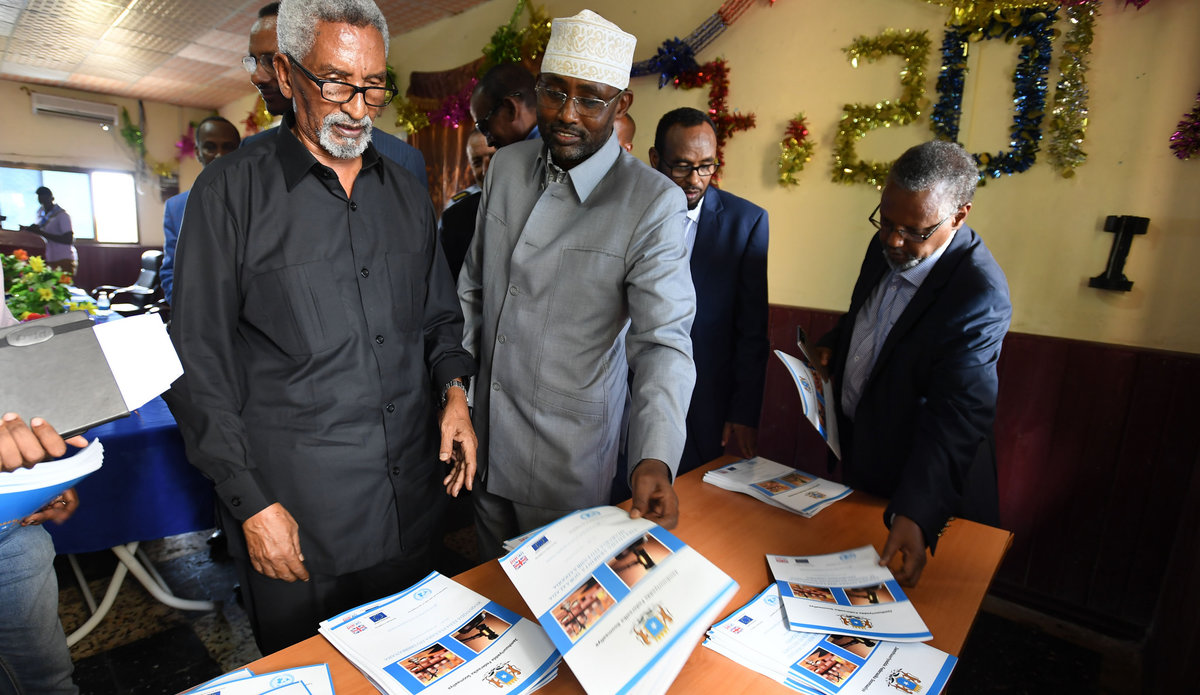
UN launches judicial training curriculum for Somalia

The UN and Somalia government have launched an extensive program to train over 350 judicial officers countrywide as part of efforts to rebuild the country’s justice sector.
David Akopyan, UNDP Deputy Country Director for Somalia, said delivery of justice was critical to ensuring good governance, strengthening the rule of law and establishing order.
“The UNDP is here to help the country to get on its own feet; and to start developing its own systems,” Akopyan said in a statement from the UN mission in Somalia (UNSOM) released on Monday.
“We want Somali politics, justice, security and jobs; employment and economic opportunities to be inclusive. This is the key message of inclusiveness from UNDP; and we are here to make this country a better place for you and your children,” he said.
The UNDP has in the past trained 90 judges and prosecutors in rule of law issues, justice and security in Somalia.
Ibrahim Idle Suleyman, the country’s Chief Justice said the series of donor-funded trainings would support judicial reforms and development of laws to bring the country to current global standards.
“The country’s political architecture has changed and this has an impact on the judiciary. As a result, we need to undertake judicial reforms,” Suleyman said.
“This also includes the need to reconstruct the buildings that house the judicial institutions. Our structures were destroyed during the war and are in need of repair,” he added.
The training for judicial officers will cover priority areas, including court management and leadership; civil trial procedure; criminal trial procedures; general principles of the Somali criminal law; and rights of the accused and the victims.
The judicial officers will also learn procedures and guidance for crime investigations; legal and administrative procedures; ethics, and practical legal skills.
The UN Police Commissioner in Somalia, Christoph Buik said the training of judicial officers will be the first structured program of its kind to be undertaken in Somalia since 2012.
“Capacitating judicial personnel is critical, especially at the federal member states level to ensure that the judiciary can fulfill its mandates and deliver justice services to the people in Somalia,” Buik stated.
The training will initially benefit judges, prosecutors, and registrars, before it is expanded to train judicial personnel from the Federal Member States of Jubbaland, South West, Galmudug, Hirshabelle and Puntland.
“The training will contribute towards establishing independent, accountable and capable judiciary which will be able to address the justice needs of the Somali people,” Buik added.






